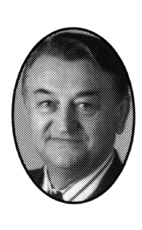Mr. Speaker, in reply to the hon. member's question and intervention, I have taken the liberty to note the first interview given by Chief Superintendent Neil Pouliot in his capacity as commissioner of the United Nations civilian police contingency in Haiti.
Commissioner Pouliot has clearly indicated that Canada's commitment in Haiti has been set for approximately 18 months, that is until the inauguration of Haiti's next president which is slated for February 1986.
He has also said, and this became the basis for the member's question in the House today and his intervention now, is that he thought Haiti might need eight to ten years before its police force reforms were fully implemented. This comment made in his capacity as UN commissioner referred to the need for a complete change of attitudes and the time needed for all ranks of the future 5,000 strong force to assimilate the concepts of a modern police force.
He certainly did not imply that Canada has committed itself for that length of time. That is certainly not our intention. Canada has pledged to assist Haiti in the area of police reform through our participation in the United Nations Mission in Haiti. For this purpose we have sought 100 volunteers who will be deployed in the weeks or months ahead once the Security Council has authorized the United Nations Mission in Haiti.
The cost of this participation has been estimated at $12.8 million for the 18-month period I have just mentioned. This is what the member was asking. CIDA will cover those costs.
The task of the RCMP officers will be to monitor the behaviour of the new Haitian police, accompany them on their daily rounds and give them on-the-street training. The RCMP will not take official duty. They are there to train, not to do the policing themselves.
We do not know yet how long such monitoring will be required and if, after a certain lapse of time, all of the 100 Mounties will be needed. Once a formal training program has begun it is quite possible that smaller numbers will be required.
I thank the hon. member for raising this. He has made excellent interventions in the standing committee on foreign affairs and in the joint committee reviewing foreign policy. I know he views this issue with great interest and importance.

